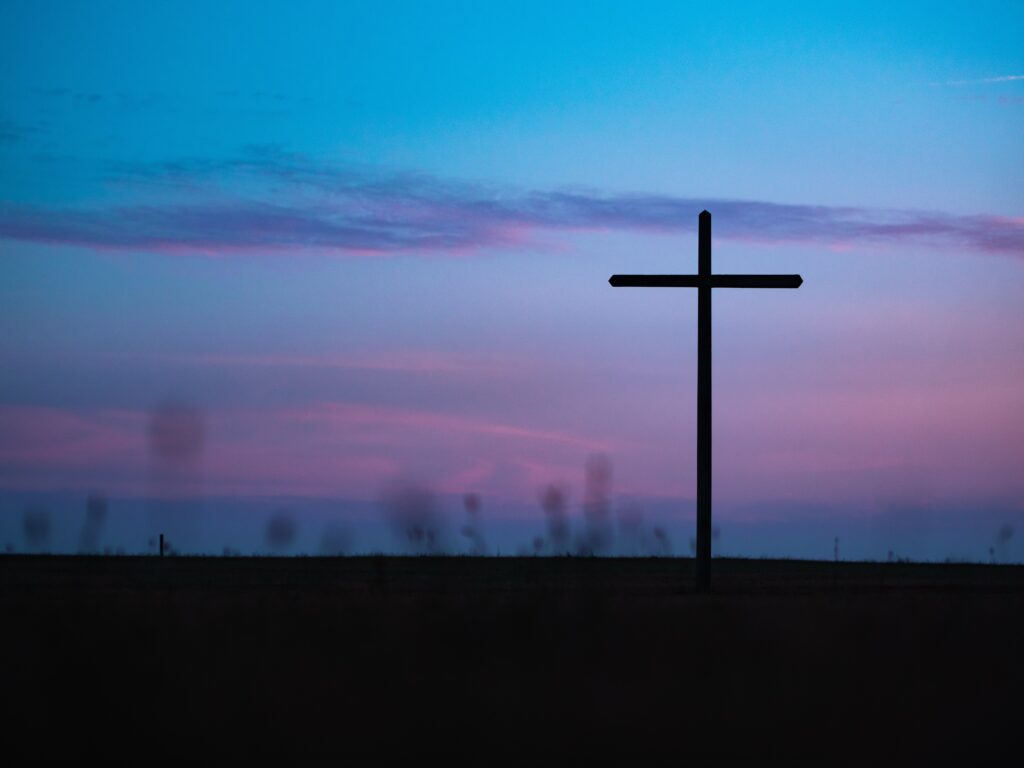
For a further in depth study. Watch this article and video done by Sam Shamoun (video, article).
Is Genesis 19:24, Just a Hebrew Idiom?
- “24 Then the LORD rained brimstone and fire on Sodom and Gomorrah, from the LORD out of the heavens.” – Genesis 19:24 (NKJV)
Objection: Trinitarians often argue that this demonstrates the concept of a multi-personal God, but in reality, this is an example of a Hebrew idiom. What exactly is a Hebrew idiom? It’s an expression typically involving a verb and a noun as its direct object, with a meaning that deviates from the literal interpretation of the words used. Similar examples can be found in these passages…
- “Now Solomon assembled the elders of Israel and all the heads of the tribes, the chief fathers of the children of Israel, to King Solomon in Jerusalem, that they might bring up the ark of the covenant of the LORD from the City of David, which is Zion.” – 1 Kings 8:1(NKJV)
- “12 Then Jonathan said to David: “The LORD God of Israel is witness! When I have sounded out my father sometime tomorrow, or the third day, and indeed there is good toward David, and I do not send to you and tell you, 13 may the LORD do so and much more to Jonathan. But if it pleases my father to do you evil, then I will report it to you and send you away, that you may go in safety. And the LORD be with you as He has been with my father.” – 1 Samuel 20:12-13 (NKJV)
- “21 Now David had said, “Surely in vain I have protected all that this fellow has in the wilderness, so that nothing was missed of all that belongs to him. And he has repaid me evil for good. 22 May God do so, and more also, to the enemies of David, if I leave one male of all who belong to him by morning light.” – 1 Samuel 25:21-22
Response: This analogy doesn’t hold up. Despite the objection raised, the context leading up to Genesis 19:24 sheds light on the matter. Trinitarians acknowledge instances in the Bible where individuals speak in the third person, contingent upon the context. Examples include Jesus referring to himself in the third person in passages like John 17:1, Mark 10:45, and Matt. 26:64. However, the context surrounding Genesis 18 and 19 presents a distinct narrative. It reveals that YHWH was physically present on earth with Abraham, and subsequently proceeded to Sodom and Gomorrah to execute judgment after conversing with Abraham.
- “1 And the LORD APPEARED (Stong’s H7200) to him by the oaks of Mamre, as he sat at the door of his tent in the heat of the day. 2 He lifted up his eyes and looked, and behold, three men were standing in front of him. When he saw them, he ran from the tent door to meet them and bowed himself to the earth 3 and said, ‘O Lord, if I have found favor in your sight, do not pass by your servant. 4 Let a little water be brought, and wash your feet, and rest yourselves under the tree, 5 while I bring a morsel of bread, that you may refresh yourselves, and after that you may pass on–since you have come to your servant.’ So they said, ‘Do as you have said.’ 6 And Abraham went quickly into the tent to Sarah and said, ‘Quick! Three seahs of fine flour! Knead it, and make cakes.’ 7 And Abraham ran to the herd and took a calf, tender and good, and gave it to a young man, who prepared it quickly. 8 Then he took curds and milk and the calf that he had prepared, and set it before them. And he stood by them under the tree while THEY ATE. 9 They said to him, ‘Where is Sarah your wife?’ And he said, ‘She is in the tent.’ 10 And He said (The Lord said), ‘I will surely return to you about this time next year, and Sarah your wife shall have a son.’ And Sarah was listening at the tent door behind him. 11 Now Abraham and Sarah were old, advanced in years. The way of women had ceased to be with Sarah. 12 So Sarah laughed to herself, saying, ‘After I am worn out, and my lord is old, shall I have pleasure?’ 13 THE LORD SAID TO Abraham, ‘Why did Sarah laugh and say, “Shall I indeed bear a child, now that I am old?” 14 Is anything too hard for the LORD? At the appointed time I will return to you about this time next year, and Sarah shall have a son.’ 15 But Sarah denied it, saying, ‘I did not laugh,’ for she was afraid. HE SAID, ‘No, but you did laugh.’ 16 Then the men set out from there, and they looked down toward Sodom. And Abraham went with them to set them on their way. 17 THE LORD SAID, ‘Shall I hide from Abraham what I am about to do, 18 seeing that Abraham shall surely become a great and mighty nation, and all the nations of the earth shall be blessed in him? 19 For I have chosen him, that he may command his children and his household after him to keep the way of the LORD by doing righteousness and justice, so that the LORD may bring to Abraham what he has promised him.’ 20 THEN THE LORD said, ‘Because the outcry against Sodom and Gomorrah is great and their sin is very grave, 21 I WILL GO DOWN (imperfect) to see whether they have done altogether according to the outcry that has come to me. And if not, I will know.’ 22 So the men turned from there and went toward Sodom, BUT ABRAHAM STILL STOOD BEFORE THE LORD. 23 Then Abraham drew near and said, ‘Will you indeed sweep away the righteous with the wicked? 24 Suppose there are fifty righteous within the city. Will you then sweep away the place and not spare it for the fifty righteous who are in it? 25 Far be it from you to do such a thing, to put the righteous to death with the wicked, so that the righteous fare as the wicked! Far be that from you! Shall not the Judge of all the earth do what is just?’ 26 AND THE LORD SAID, ‘If I find at Sodom fifty righteous in the city, I will spare the whole place for their sake.’ 27 Abraham answered and said, ‘Behold, I have undertaken to speak to the Lord, I who am but dust and ashes. 28 Suppose five of the fifty righteous are lacking. Will you destroy the whole city for lack of five?’ AND HE SAID, ‘I will not destroy it if I find forty-five there.’ 29 Again he spoke to him and said, ‘Suppose forty are found there.’ HE ANSWERED, ‘For the sake of forty I will not do it.’ 30 Then he said, ‘Oh let not the Lord be angry, and I will speak. Suppose thirty are found there.’ HE ANSWERED, ‘I will not do it, if I find thirty there.’ 31 He said, ‘Behold, I have undertaken to speak to the Lord. Suppose twenty are found there.’ HE ANSWERED, ‘For the sake of twenty I will not destroy it.’ 32 Then he said, ‘Oh let not the Lord be angry, and I will speak again but this once. Suppose ten are found there.’ HE ANSWERED, ‘For the sake of ten I will not destroy it.’ 33 And THE LORD WENT HIS WAY, WHEN HE HAD FINISHED SPEAKING TO Abraham, and Abraham returned to his place.” Genesis 18:1-33 (ESV)
The two men that departed first are identified as two Angels.
- “The TWO ANGELS came to Sodom in the evening, and Lot was sitting in the gate of Sodom. When Lot saw them, he rose to meet them and bowed himself with his face to the earth and said, ‘My lords, please turn aside to your servant’s house and spend the night and wash your feet. Then you may rise up early and go on your way.’ They said, ‘No; we will spend the night in the town square.’ But he pressed them strongly; so they turned aside to him and entered his house. And he made them a feast and baked unleavened bread, and they ate.” – Genesis 19:1-3 (NKJV)
- “Then THE MEN said to Lot, ‘Have you anyone else here? Sons-in-law, sons, daughters, or anyone you have in the city, bring them out of the place. For WE are about to destroy this place, because the outcry against its people has become great before the LORD, and the LORD HAS SENT US to destroy it.’ So Lot went out and said to his sons-in-law, who were to marry his daughters, ‘Up! Get out of this place, for the LORD is about to destroy the city.’ But he seemed to his sons-in-law to be jesting. As morning dawned, THE ANGELS urged Lot, saying, ‘Up! Take your wife and your two daughters who are here, lest you be swept away in the punishment of the city.’ But he lingered. So THE MEN seized him and his wife and his two daughters by the hand, the LORD being merciful to him, and they brought him out and set him outside the city. And as they brought them out, one said, ‘Escape for your life. Do not look back or stop anywhere in the valley. Escape to the hills, lest you be swept away.’ And Lot said to them, ‘Oh, no, my LORDS. Behold, your servant has found favor in your sight, and you have shown me great kindness in saving my life. But I cannot escape to the hills, lest the disaster overtake me and I die. Behold, this city is near enough to flee to, and it is a little one. Let me escape there–is it not a little one?–and my life will be saved!’ He said to him, ‘Behold, I grant you this favor also, that I will not overthrow the city of which you have spoken. Escape there quickly, for I can do nothing till you arrive there.’ Therefore the name of the city was called Zoar. By the time Lot reached Zoar, the sun had risen over the land. Then the LORD rained down burning sulfur on Sodom and Gomorrah—FROM THE LORD out of the heavens. Thus he overthrew those cities and the entire plain, including all those living in the cities—and also the vegetation in the land. But Lot’s wife looked back, and she became a pillar of salt. Early the next morning Abraham got up and returned to the place where he had stood before the LORD. He looked down toward Sodom and Gomorrah, toward all the land of the plain, and he saw dense smoke rising from the land, like smoke from a furnace. So when God destroyed the cities of the plain, he remembered Abraham, and HE brought Lot out of the catastrophe that overthrew the cities where Lot had lived.” Genesis 19:12-29
As you can see the LORD is clearly physically and visibly. The word used to show this is וַיֵּרָ֤א APPEARED (Stong’s H7200, pronunciation: va-yei-RA) before Abraham. This word shows that it is used in a physical appearance at times throughout the Bible.
- 11 Now the Angel of the LORD came and sat under the terebinth tree which was in Ophrah, which belonged to Joash the Abiezrite, while his son Gideon threshed wheat in the winepress, in order to hide it from the Midianites. 12 And the Angel of the LORD appeared (wā·’er·’eh – 7200) to him, and said to him, “The LORD is with you, you mighty man of valor!” – Judges 6:11-12 (NKJV)
This illustrates the Angel of the Lord making a visible appearance to Gideon, evident through the Angel’s physical presence, which includes sitting beneath the terebinth tree. This indicates a distinct location within a specific moment in space and time.
- 2 And the Angel of the LORD appeared (wā·’er·’eh – 7200) to him in a flame of fire from the midst of a bush. So he looked, and behold, the bush was burning with fire, but the bush was not consumed. Exodus 3:2 (NKJV)
This passage is widely recognized, depicting the Angel of the Lord appearing visibly before Moses in the burning bush to communicate with him. In this encounter, the Angel of the Lord is understood to be God himself that appeared in the bush.
- 1 In the year that King Uzziah died, I saw (wā·’er·’eh – 7200) the Lord sitting on a throne, high and lifted up, and the train of His robe filled the temple. 2 Above it stood seraphim; each one had six wings: with two he covered his face, with two he covered his feet, and with two he flew. 3 And one cried to another and said: “Holy, holy, holy is the LORD of hosts; The whole earth is full of His glory!” 4 And the posts of the door were shaken by the voice of him who cried out, and the house was filled with smoke. 5 So I said: “Woe is me, for I am undone! Because I am a man of unclean lips, And I dwell in the midst of a people of unclean lips; For my eyes have seen the King, The LORD of hosts.”6 Then one of the seraphim flew to me, having in his hand a live coal which he had taken with the tongs from the altar. 7 And he touched my mouth with it, and said: “Behold, this has touched your lips; Your iniquity is taken away, And your sin purged.” 8 Also I heard the voice of the Lord, saying: “Whom shall I send, And who will go for Us?” Then I said, “Here am I! Send me.” – Isaiah 6:1-8 (NKJV, verse 1)
As depicted in Isaiah’s narrative, YHWH, the God and King of Israel (Isaiah 44:6), manifested visibly before him. He is described as being attended by seraphim angels, with his face and feet concealed.
- 9 “Then Moses went up, also Aaron, Nadab, and Abihu, and seventy of the elders of Israel, 10 and they SAW (way·yir·’ū – 7200) the God of Israel. And there was under HIS FEET as it were a paved work of sapphire stone, and it was like the very heavens in its clarity. 11 But on the nobles of the children of Israel He did not lay His hand. So they saw God, and they ate and drank.” Exodus 24:9-11 (NKJV, 10, 11)
In this passage, certain chosen individuals from Israel directly witnessed a tangible manifestation of God, described with feet and hands. This portrayal echoes similar instances, such as God’s voice walking in the Garden, as depicted in Genesis 3:8.
- “24 Then Jacob was left alone; and a Man wrestled with him until the breaking of day. 25 Now when He saw that He did not prevail against him, He touched the socket of his hip; and the socket of Jacob’s hip was out of joint as He wrestled with him. 26 And He said, “Let Me go, for the day breaks.” But he said, “I will not let You go unless You bless me!” 27 So He said to him, “What is your name?” He said, “Jacob.” 28 And He said, “Your name shall no longer be called Jacob, but Israel; for you have struggled with God and with men, and have prevailed.” 29 Then Jacob asked, saying, “Tell me Your name, I pray.” And He said, “Why is it that you ask about My name?” And He blessed him there. 30 So Jacob called the name of the place Peniel: “For I HAVE SEEN (rā·’î·ṯî – 7200) GOD FACE TO FACE, and my life is preserved.” 31 Just as he crossed over Penuel the sun rose on him, and he limped on his hip. 32 Therefore to this day the children of Israel do not eat the muscle that shrank, which is on the hip socket, because He touched the socket of Jacob’s hip in the muscle that shrank.” – Genesis 32:24-30 (Interlinear: 24, 25, 26, 27, 28, 29, 30, 31, 32)
Jacob’s encounter with God, marked by a wrestling match, culminated in his blessing. Instead of evading his life’s challenges, he confronted them head-on, prompting God to change his name. This transformation was foreshadowed when God informed Rebekah of the dual nations within her womb (Genesis 25:22-26). For further insights, refer to the linked article. With this groundwork laid, let’s delve into the continuation of Genesis 18.
Recap of The Context
(skip to the next sub heading if you already understand chapter 18)
A quick recap of things we need to highlight within certain verses in Genesis 18. In verse 2 it says Abraham saw 3 men standing in front of his tent door, keep that in mind. In verse 4 it mentions them having “feet”, so we know that Abraham is literally seeing the LORD and two other men that are identified as two angles in Genesis 19:1. In verse 8, the LORD and the other 2 men ate food that Abraham gave to them. From verse 10-15 God reads Sarah’s mind and catches her in a lie. Verse 16 says the men rose up and looked towards Sodom and Gomorrah. Not all the men left seeing as one them being the LORD GOD stayed behind in verse 22-23, but he says were he is going, which is toward Sodom and Gomorrah.
Verse 17 Says “Shall I hide from Abraham what I am about to do.” Referring to Sodom and Gomrah. Showing that he is the one that is doing the destroying in Genesis 19:24. God was physically on the earth at all times in these passage related to this context. At no point in the text does it suggest God left the context, but rather the opposite.
In verse 22, “stood” ‘ō·mêḏ (meaning: To stand, in various relations; Verb) and “before” lip̄·nê (meaning: face, faces; Noun) imply Abraham’s literal presence before God’s face. Similar to Jacob wrestling with God in Genesis 32:24-30 (primarily in verse 30). The words in verse 23, “drew near” or “stepped forward” that word is way·yig·gaš. Indicates physical movement towards the manifested presence of the Lord, emphasizing Abraham’s tangible approach to God’s embodied form in space and time.
In verse 25 (all the way down) Abraham calls God “the judge of all the earth,” Showing that there is no doubt that he is talking to God himself.
Verse 33 states that “the LORD went his way when he had finished speaking to Abraham.” The Hebrew word used here, “כִּלָּ֔ה” (kil·lāh), conveys the sense of completion, fulfillment, or accomplishment. It signifies that the conversation between the Lord and Abraham had reached its conclusion, rather than implying that the Lord remained physically present with Abraham. Thus, there should be no confusion regarding the context (in contrast to verse 21): Abraham was before the face of God during their interaction, but the verse indicates that the Lord departed after their conversation concluded.
In conclusion, objections to Genesis 19:24, often raised by Trinitarians to support the concept of a multi-personal God, are addressed through a detailed examination of the biblical text. While some argue that the verse merely represents a Hebrew idiom, the context surrounding Genesis 18 and 19 reveals a distinct narrative. Trinitarians acknowledge instances in the Bible where individuals speak in the third person, contingent upon the context. However, in this specific case, the narrative indicates that YHWH was physically present on earth with Abraham and subsequently proceeded to Sodom and Gomorrah to execute judgment after conversing with him. Along with the LORD out of the heavens, proving the narrative a multipersonal God. The visible and tangible manifestations of the Lord, as witnessed by Abraham and other biblical figures, underscore the personal nature of these encounters and reinforce the monotheistic belief in the singular deity of God.
Conclusion of Hebrew Idom
The verses bellow support the proper exegesis that was just explained earlier in the article about Genesis 18-19. There is one called Yahweh on earth physically while there is another called Yahweh in heaven. Not that there is two actual Yahweh as in two different God’s. However two different persons called Yahweh in the text.
- “11 I overthrew some of you, As God overthrew Sodom and Gomorrah, And you were like a firebrand plucked from the burning; Yet you have not returned to Me,” Says the LORD.” – Amos 4:11 (NKJV)
- “40 As God overthrew Sodom and Gomorrah And their neighbors,” says the LORD, “So no one shall reside there, Nor son of man dwell in it.” – Jeremiah 50:40
- “17 Behold, I will stir up the Medes against them, Who will not regard silver; And as for gold, they will not delight in it. 18 Also their bows will dash the young men to pieces, And they will have no pity on the fruit of the womb; Their eye will not spare children. 19 And Babylon, the glory of kingdoms, The beauty of the Chaldeans’ pride, Will be as when God overthrew Sodom and Gomorrah.” – Isaiah 13:17-19 (17, 18, 19) (NKJV)
The Two Angels Are Actually The YHWH’s in Genesis 19:24?
This argument is the appeal to agency, which anti-trinitarians will sometimes make. However, there are a lot of problems with that assertion when we start exegeting the passages carefully in the context surrounding Genesis 19:24. This objections falls apart due to the context, basic math and the assumptions applied onto the text.
ASSERTION 1: The Angels are called YHWH in verse 24, refuting the idea of two persons of the Trinity.
RESPONSE: While it’s true that God can speak through prophets and angels, and that sometimes messengers speak on behalf of God, anti-Trinitarians often overapply this concept. Using it as a blanket explanation for passages they struggle to interpret within their worldview can be problematic.
When it comes to the identity of the angels in Genesis 19, interpretations vary widely. Some view them merely as representatives of God. However, in verse 24, the angels are referred to as Adonay, a divine title exclusive to God (and the Messiah in Psalm 110). This suggests a divine identity for the angels themselves.
Alternatively, some argue that these angels are divine beings in their own right. Both interpretations warrant further analysis and discussion. Thus, it’s misguided to assert that the YHWH mentioned in verse 24 are simply two angels representing God.
ASSERTION 2: One of the Angels ascended to Heaven while the other remained on Earth.
RESPONSE: This claim finds no support in the passage; in fact, it suggests the opposite. While some may not explicitly state this assertion, it’s implied in their initial argument with the first assertion. However, by the time we reach verse 24, both angels are still on Earth conversing with Lot, with no indication of one ascending to heaven (the sky) while the other remains on Earth. Additionally, this interpretation overlooks the contextual consistency from chapter 18, where three men, including YHWH and two angels, are mentioned. Because in Genesis 19:1 it identifies the other two men as angels that have descended to Sodom while the LORD stayed behind to talk to Abraham. Any objection to the Trinity based on this assertion must also address the whereabouts of the third man, challenging the consistency of the argument. You can’t just leave the third man out of the picture for convenience.
ASSERTION 3: The Angels, based on Genesis 19:13, are responsible for the destruction, implying they are the YHWH’s referenced in verse 24.
RESPONSE: However, Assertion 2 still holds valid when examining the logic of Assertion 3. In Genesis 18:16-22, God is depicted as one of the men intending to go down to Sodom and Gomorrah. The text doesn’t initially specify who remains and who departs until later, revealing that “The LORD” stays while the other two men leave. Verse 17 explicitly states that He is the one about to execute the destruction, saying, “what I am about to do.” Considering this, the presence of the third man (interpreted as God) engaging in the destruction in chapter 19:24 remains necessary. While the angels are involved in the act of destruction, there’s no indication that they represent the YHWH (Jehovah) present on earth distinct from another YHWH (Jehovah).
Were The Angles Worshipped in Genesis 19:1?
Bowing one’s head during ancient times, particularly in the era of Abraham, was akin to the respectful bowing gestures observed in certain cultures today. Today, various cultures use this gesture to express respect, honor, apologies, and gratitude towards others.Here are some examples of bowing not being worship. This doesn’t mean Abrham bowing his head meant it was worship but respect.
- “7 Then Abraham stood up and bowed himself to the people of the land, the sons of Heth…12 Then Abraham bowed himself down before the people of the land;” – Genesis 23:7, 12 (NKJV)
- “2 And all the king’s servants who were within the king’s gate bowed and paid homage to Haman, for so the king had commanded concerning him. But Mordecai would not bow or pay homage.” – Esther3:2 (NKJV)
- 1 Samuel 24:8: “David also arose afterward, went out of the cave, and called out to Saul, saying, ‘My lord the king!’ And when Saul looked behind him, David stooped with his face to the earth, and bowed down.” (NKJV)
- 1 Kings 1:23: “So they told the king, saying, ‘Here is Nathan the prophet.’ And when he came in before the king, he bowed down before the king with his face to the ground.” (NKJV)





